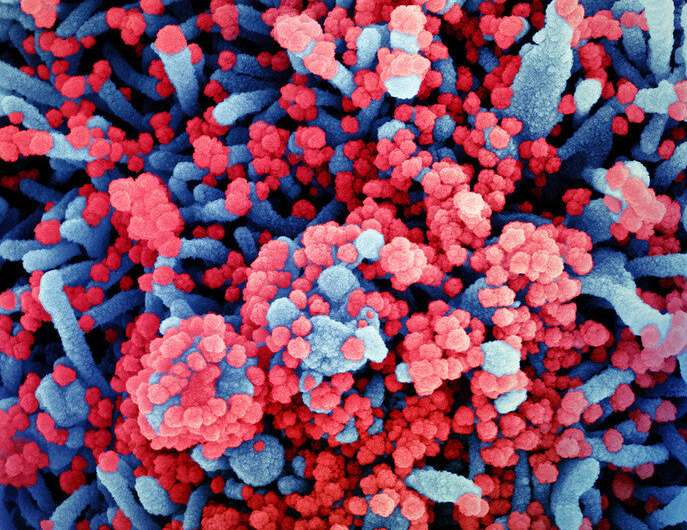Childhood syndrome linked to COVID-19 causes profound immune changes

Researchers have uncovered how the immune system is altered in a rare COVID-19 related illness in children referred to as paediatric inflammatory multisystem syndrome (PIMS-TS).
PIMS-TS is a rare syndrome which has emerged in a small number of children during the COVID-19 pandemic. The condition causes severe inflammation in blood vessels and can lead to heart damage.
The team from Evelina London Children's Hospital and King's College London analysed blood samples from 25 children who had PIMS-TS and compared these to healthy children. The study, supported by the NIHR Guy's and St Thomas' BRC and published in Nature Medicine, showed that in the acute stage of PIMS-TS, children have raised levels of molecules called cytokines, and reduced levels of white blood cells called lymphocytes. They saw that by the time the children had recovered, the immune system changes had gradually returned to normal.
Although the number of children in the study was small, this is the first evidence about the role of the immune system in the disease. It provides vital evidence for future research and will indicate what treatments may help patients with the condition.
The first cases of PIMS-TS were treated at Evelina London in mid-April 2020. Initial reports suggested the condition may be similar to existing conditions such as Kawasaki disease. However, the new research confirms that PIMS-TS affects the body in a different way to other known conditions and has been identified as a new syndrome.
The research, led by Dr. Shankar-Hari within the King's College London School of Immunology and Microbial Sciences, worked to understand the immune system changes underlying this new condition.
Blood samples were analysed from 25 children who had tested positive for the SARS-COV-2 virus, had symptoms of COVID-19, had been in close contact with someone who had tested positive, or whose parent was a healthcare worker.
Blood samples were tested from children these children at different stages of the disease, from the acute phase when they first came onto hospital, through to their outpatient appointments. The researchers compared these results to those of seven healthy age-matched children.
Dr. Manu Shankar-Hari is a consultant in intensive care medicine at Guy's and St Thomas' and NIHR Clinician Scientist and Reader and Consultant in Intensive Care Medicine at King's College London. He said: "PIMS-TS is a new syndrome. Our research has allowed us to provide the first description of the profound immune system changes in severely ill children with this new illness.
"These immune changes are complex. The innate, otherwise known as the rapidly responding, immune cells are activated. The lymphocytes, a particular type of white cell involved in specific protective immunity, are depleted, but appear to be actively fighting infection.
"Clinically, these children respond to treatments that calm the immune system such as corticosteroid and immunoglobulins. Although there are similarities to existing conditions such as Kawasaki Disease, these clinical and immunological changes that we observe imply that PIMS-TS is a distinct illness associated with SARS-Co-V-2 infections."
Dr. Shane Tibby, paediatric ICU consultant at Evelina London said: "When we first saw the immunophenotyping results in this paper, it confirmed our clinical impression: that this was neither Toxic Shock nor Kawasaki Disease, but rather a new entity that likely requires both organ support and careful, targeted immunotherapy."
Dr. Michael Carter is a Paediatric NIHR Academic Clinical Lecturer and sub-speciality registrar in paediatric intensive care at Evelina London. He said: "The support of children and young people with PIMS-TS was crucial in this study. Their help enabled us to monitor changes in the immune system during their illness and recovery and may contribute towards developing targeted immune therapy for children with PIMS-TS in the future."
More information: Michael J. Carter et al, Peripheral immunophenotypes in children with multisystem inflammatory syndrome associated with SARS-CoV-2 infection, Nature Medicine (2020). DOI: 10.1038/s41591-020-1054-6




















